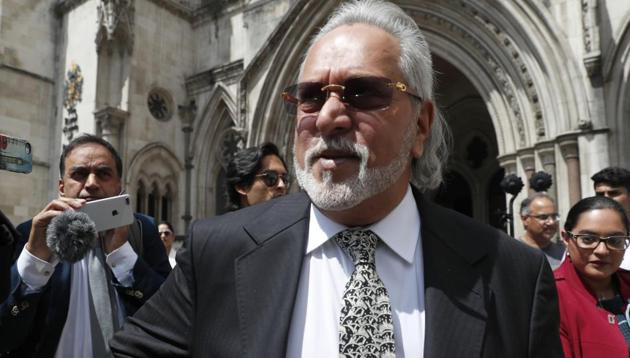‘Be thorough in extradition requests’: Government to agencies
According to people familiar with the matter, fresh guidelines were issued in this regard by MHA last week to all the state police forces and central agencies.
In a bid to improve India’s record in securing cooperation from foreign jurisdictions, the ministry of home affairs (MHA) has asked all investigation agencies to adhere to international agreements and laws, avoid trivial queries, not be vague, check “dual criminality”, and assurances such as death penalty, prison conditions and terms of sentences while sending requests for overseas investigations and extraditions in order to make such pleas “watertight”.

According to people familiar with the matter, fresh guidelines were issued in this regard by MHA last week to all the state police forces and central agencies. The home ministry is the central authority for sending and executing all requests under the mutual legal assistance treaties (MLAT) and letter rogatories (LRs), while the ministry of external affairs is the central authority for extraditions. The International Police Cooperation Cell (IPCC) in the Central Bureau of Investigation (CBI) is the facilitating authority for such requests.
The people said several probes pertaining to big-ticket corruption scandals, money laundering and terrorism remain unsolved as requests sent to various countries under MLAT or LR either remain unanswered for years or are rejected. Similarly, extradition requests sent by India are not executed promptly, or discarded by various countries, due to incomplete information or documents sent by probe agencies, they added.
As examples, one of the people cited above pointed out that CBI’s extradition request for AgustaWestland case middleman Carlo Valentino Gerosa was rejected by Italy citing non-availability of MLAT between two countries. Similarly, during Vijay Mallya’s extradition arguments in a London court, his lawyer Clare Montgomery questioned CBI and ED’s evidence, saying at least a dozen of documents submitted by agencies were identical.
According to the guidelines, accessed by HT, the probe agencies have been asked that documents or evidence enclosed with any request be properly marked, translated in the language mentioned in the treaty/agreement or International Convention and “neatly bound and page-numbered”.
In case of service documents, MHA has asked agencies to provide the clear and complete address of the concerned person. The agencies have also been cautioned to take care of confidentiality clauses.
On what the agencies should not do, the guideline says that they should not make “vague” requests.
“Fishing inquiries should be avoided. Information which is not relevant for the investigation and prosecution of the criminal case should not be asked in the request,” it states, adding that requests which are trivial should be avoided.
The agencies have also been told to make sure that requests sought by them under MLAT/LRs do not relate to an offence of “a political character nor it is made for the purposes of investigating, prosecuting, punishing or otherwise causing prejudice to a person on account of that person’s race, religion, sex, ethnic origin, nationality or political opinions”.
For extradition, agencies have been asked to keep in mind the “extraditability of offences as per the Extradition Act, 1962/Treaty/Arrangement/International Convention if any; dual criminality; assurances (death penalty, prison conditions, term of sentence, etc.) and that the offences are not barred by the clause of limitation”.
Zulfiquar Memon, managing partner of law firm MZM Legal and an international extradition expert, said: “This is a welcome move. India has had a lot of setbacks in the past in extraditing several accused due to shoddy paperwork but in last few months, there has been lot of awareness in a way requests are being prepared or cases being briefed to the [international] prosecutors. It’s an exercise to build a better case and puts the country in a better position.”
The government told Parliament in November 2018 that 150 extradition requests were pending with various foreign jurisdictions. India has MLAT/bilateral agreements with 42 countries, while there are 13 countries which share information with India on the basis of Assurance of Reciprocity. For extradition, India has signed treaty with 43 countries and extradition arrangement with 11 countries.
“The new guidelines have been prepared to make sure that investigating officers/agencies have full-proof MLAT/LRs or extradition requests which could be timely honoured by foreign jurisdictions and accused persons are brought to justice. The agencies have to strictly follow these guidelines,” said an MHA official who asked not to be named.
Get Current Updates on India News, Lok Sabha Election 2024 live, Elections 2024, Election 2024 Date along with Latest News and Top Headlines from India and around the world.



